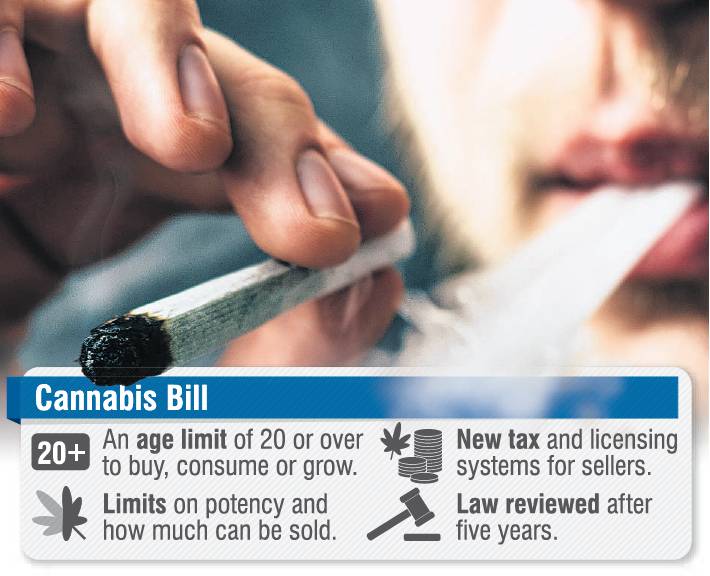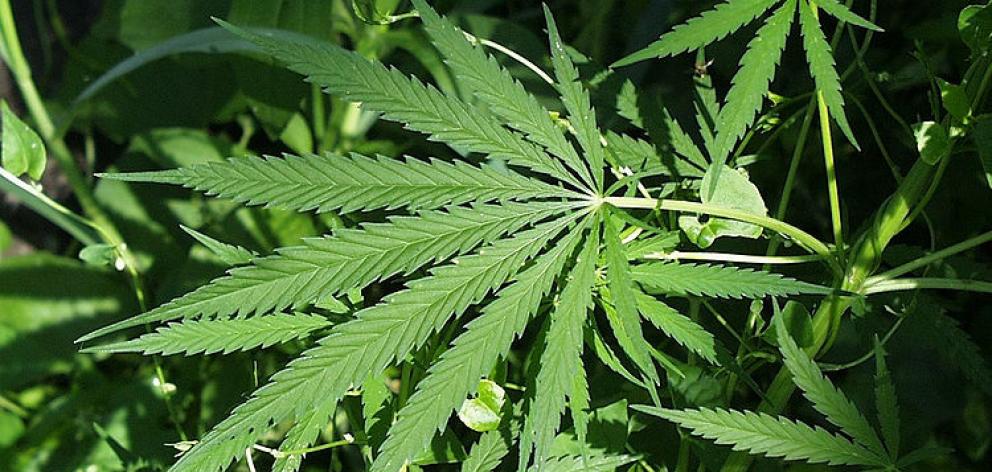
It has been at the centre of hyperbolic rhetoric, political back and forths, and ardent campaigning on both sides.
When you go to vote in this year’s election, you will be asked whether you support it or not.
But what does the proposed Cannabis Legalisation and Control Bill actually do?
In a nutshell, it gives the government a way to control and regulate cannabis, by providing a model to cover how people can legally produce, supply, or consume it.
One of the biggest changes is that it would legalise the possession and consumption of cannabis in certain circumstances.
It would also allow cannabis to be sold from licensed outlets.
Under the proposed Bill, people aged 20 or over could buy up to 14 grams of dried cannabis a day from licensed outlets, enter licensed premises where cannabis is sold or consumed, consume cannabis on private property or at a licensed premises, and grow up to two plants with a maximum of four plants per household.
There are also some things the Bill does not cover, mainly issues already covered by existing laws.
For example, medicinal cannabis, driving under the influence of cannabis, or workplace health and safety issues, are not covered under this Bill.

As well as the age limit, health warnings would be required on packaging, and the total amount of licensed cannabis for sale would be limited, as would the potency of it.
A person must be aged 20 or over to enter, or work at, premises where cannabis was sold or consumed.
However, a person under 20 could be employed by a licensed cannabis grower or processor.
Communities would be consulted about where cannabis could be sold or consumed, and it could not be imported.
The Bill also contains a focus on health outcomes, rather than criminal proceedings.
A person under 20 found in possession of cannabis would receive a health-based response such as an education session, or they would pay a small fee or fine. They would not gain a conviction.
It would not be a free-for-all on cannabis products, however.
Some would be banned, such as beverages including cannabis, products designed to increase the psychoactive or addictive effects of cannabis, and products that involve ways of consuming cannabis that are higher risk, including injectables and suppositories.
Edibles would be restricted to baked products that do not require refrigeration or heating, and must be produced in separate premises to those used for conventional food production.
In other words, you are not likely to see hash brownies in your local fast food outlet or cafe any time soon.
One of the key points is cannabis would be taxed and licences would be required to sell it, providing a new revenue stream for the government.
It is estimated that could bring in hundreds of millions of dollars each year.
A levy, similar to that applied to alcohol and gambling, would also fund services to reduce cannabis harm.
A regulatory authority would be established to ensure the rules were followed.
The law would also be reviewed after five years.
As for the referendum, it is non-binding.
That means if more than 50% of people vote "Yes", the incoming government can introduce a Bill to Parliament.
However, if more than 50% of people vote "No" in the referendum, recreational cannabis would remain illegal, and the law would be unchanged.
Comments
"Communities would be consulted about where cannabis could be sold or consumed".
"It is estimated that could bring in hundreds of millions of dollars each year. A levy, similar to that applied to alcohol and gambling, would also fund services to reduce cannabis harm."
In other words, it would be treated much like alcohol.
How is it going with the reduction of harm from alcohol and gambling???
Can we have some figures and examples of the success, or otherwise, of the function of this arm of government please?
Who are they, how many are they, what is their budget, where do they operate from and what exactly do they do ?
Will the cannabis harm reduction and education people be another government department, or will these same people simply expand the substances they cover?
When I consider the harm alcohol inflicts on our society and the effectiveness of harm reduction programmes, I'm NOT encouraged by the statements of advocates for change.
As for the more money for Government and less for gangs argument, I don't for a minute believe gangs will be willing to take a pay cut. They will simply find alternative income streams which will probably be more harmful to society.
Criminal 'income streams' are frequently and successfully busted.













